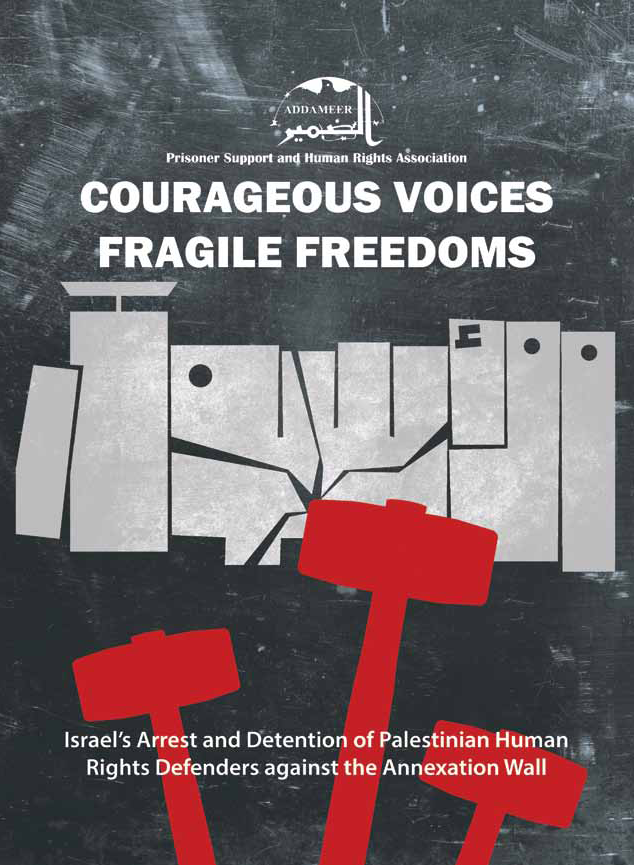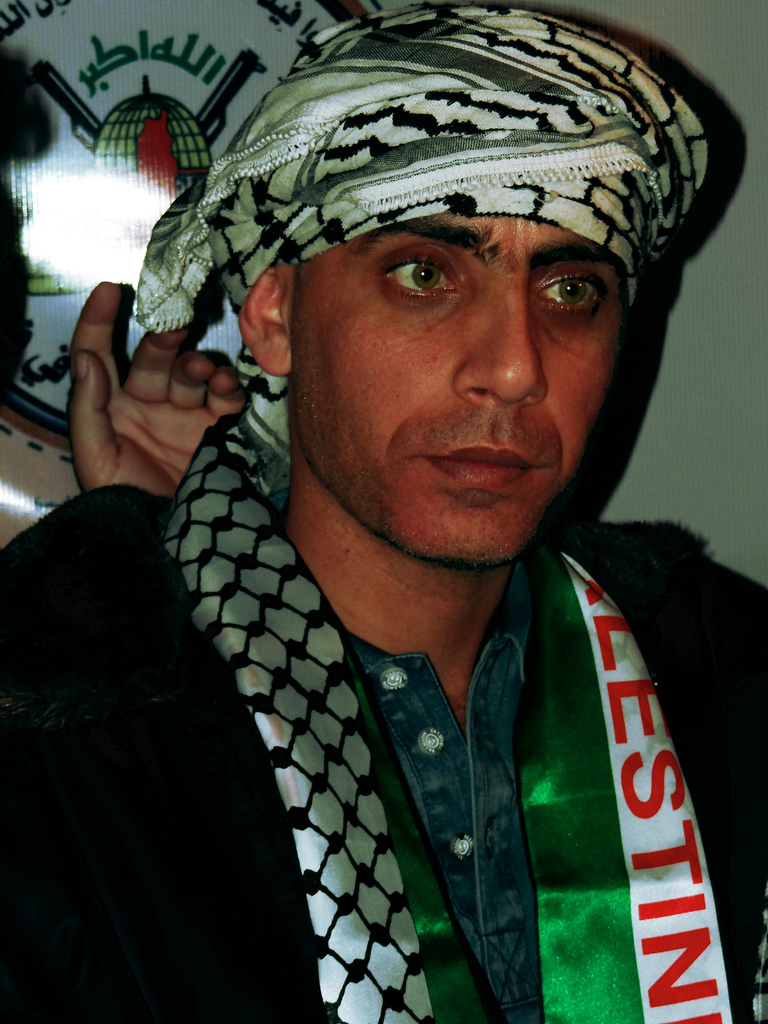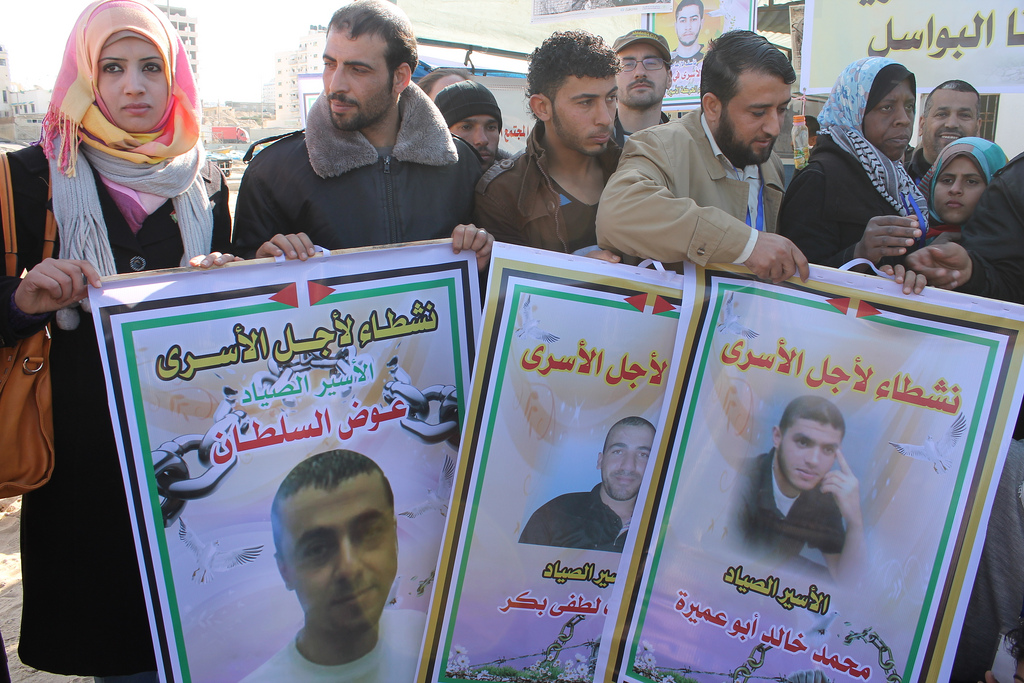Tag: Prisoner
-
Addameer Releases Latest Report on the Continued Targeting of Palestinian Human Rights Activists by Israeli Forces
13th January 2014 | Addameer Prisoner Support and Human Rights Association | Ramallah, Occupied Palestine Addameer Prisoner Support and Human Rights Association are pleased to announce the publication of its latest report ‘Courageous Voices, Fragile Freedoms’. The report examines Israel’s increasing use of arrest and detention of Palestinian human rights activists taking part in protests and…
-
26 Palestinian political prisoners released; 5,000 remain in prison
7th January 2014 | Resistenza Quotidiana, Sil | Gaza, Occupied Palestine 26 political prisoners, held in Israeli prisons since the Oslo Accords, were released the night of 30th December. About 5,000 others remain in prisons located in the territories occupied in 1948, a violation of international law. Umm Dia’a thought her son would be among the…
-
Gaza fishermen suffer 85 percent income loss as Israeli siege, attacks continue
4th January 2014 | The Electronic Intifada, Joe Catron | Gaza City, Occupied Palestine On 17 December, Palestinian fishermen and their supporters erected a tent — a traditional venue for protest, as well as celebration and mourning — inside the Gaza seaport. “It was to highlight the situation, the crimes of the Israelis against fishermen here,” said Amjad al-Shrafi, treasurer…



